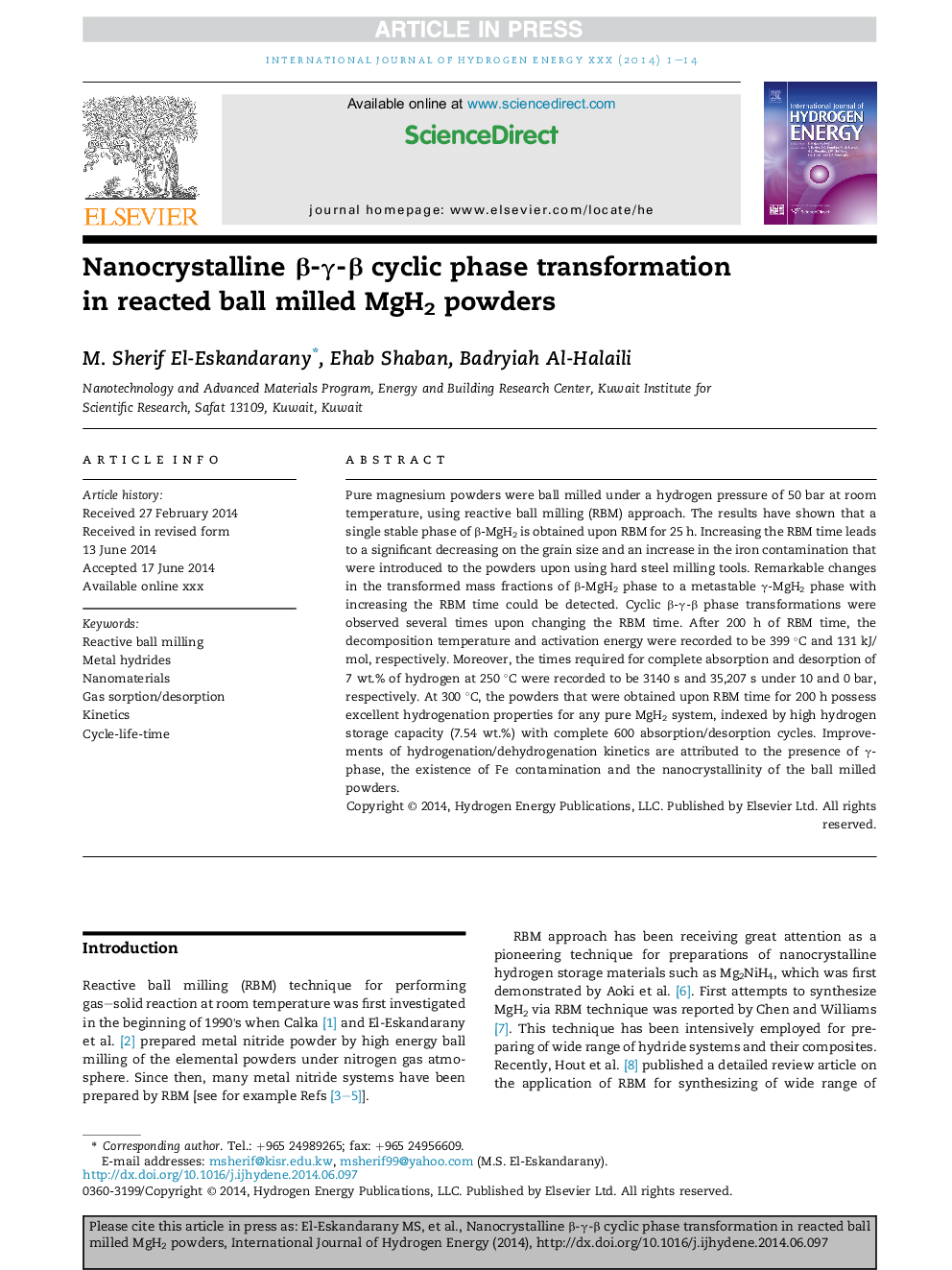| Article ID | Journal | Published Year | Pages | File Type |
|---|---|---|---|---|
| 7718478 | International Journal of Hydrogen Energy | 2014 | 14 Pages |
Abstract
Pure magnesium powders were ball milled under a hydrogen pressure of 50 bar at room temperature, using reactive ball milling (RBM) approach. The results have shown that a single stable phase of β-MgH2 is obtained upon RBM for 25 h. Increasing the RBM time leads to a significant decreasing on the grain size and an increase in the iron contamination that were introduced to the powders upon using hard steel milling tools. Remarkable changes in the transformed mass fractions of β-MgH2 phase to a metastable γ-MgH2 phase with increasing the RBM time could be detected. Cyclic β-γ-β phase transformations were observed several times upon changing the RBM time. After 200 h of RBM time, the decomposition temperature and activation energy were recorded to be 399 °C and 131 kJ/mol, respectively. Moreover, the times required for complete absorption and desorption of 7 wt.% of hydrogen at 250 °C were recorded to be 3140 s and 35,207 s under 10 and 0 bar, respectively. At 300 °C, the powders that were obtained upon RBM time for 200 h possess excellent hydrogenation properties for any pure MgH2 system, indexed by high hydrogen storage capacity (7.54 wt.%) with complete 600 absorption/desorption cycles. Improvements of hydrogenation/dehydrogenation kinetics are attributed to the presence of γ-phase, the existence of Fe contamination and the nanocrystallinity of the ball milled powders.
Related Topics
Physical Sciences and Engineering
Chemistry
Electrochemistry
Authors
M. Sherif El-Eskandarany, Ehab Shaban, Badryiah Al-Halaili,
